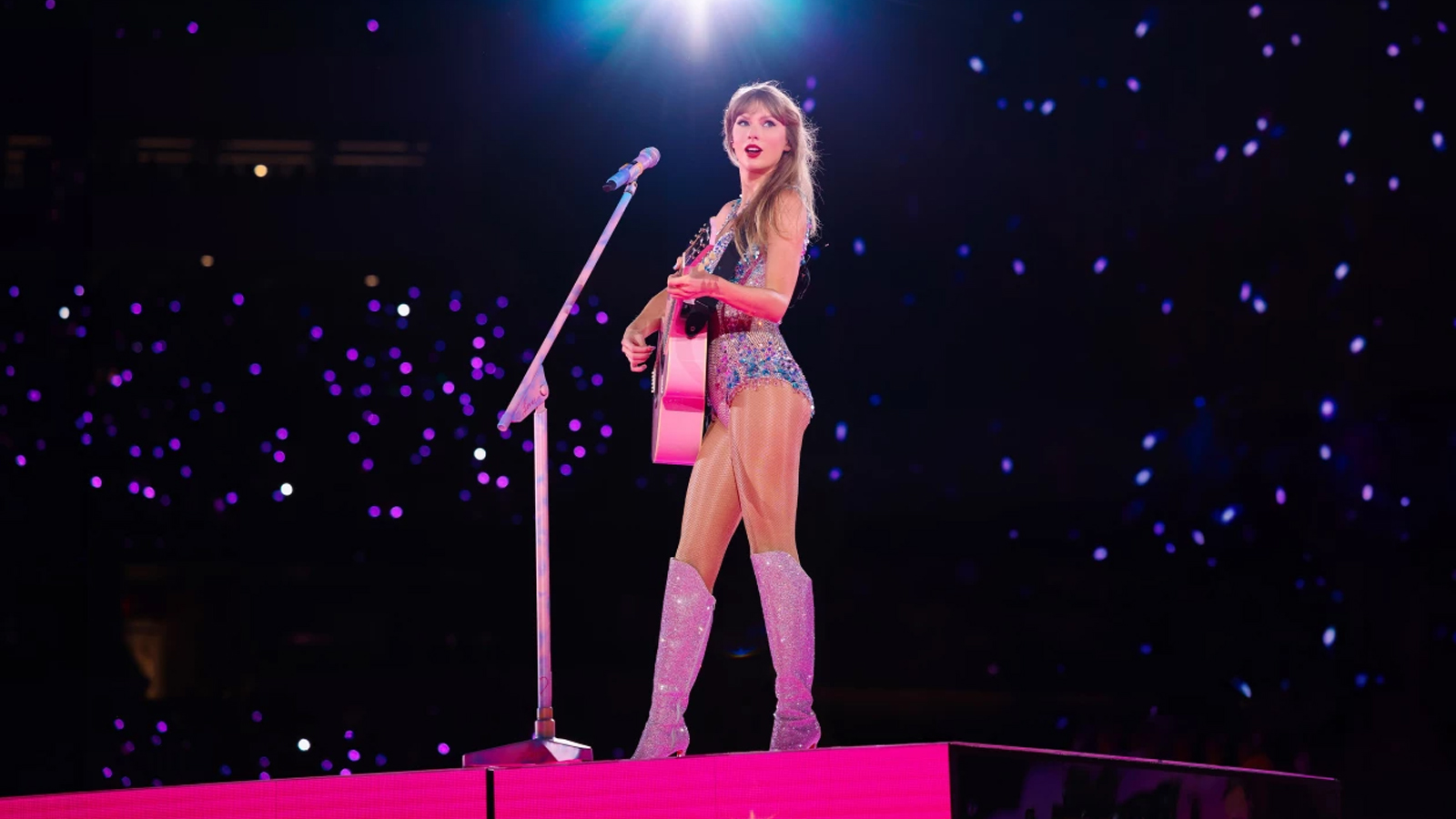Taylor Swift isn't trying to sell you a frying pan
Taylor Swift wouldn't appear in cookware firms' ads in their wildest dreams, but deepfakes could mean we're heading for a cruel summer


Taylor Swift didn't become the most successful pop star of our era by missing out on income opportunities, but if you've seen her flogging expensive cookware on Facebook, Instagram or other social networks it isn't her – and the same applies to ads apparently featuring Tom Hanks, Mr Beast and other big names. What you're seeing isn't celebrity endorsements but AI fakery.
The ads have been everywhere in recent weeks, and while they're not particularly well done they're still quite clever: for example, deepfakes of Taylor Swift have been used to sell Le Creuset cookware, which is a brand we know she likes because there's loads of it in her kitchen – something Le Creuset was quick to notice in her recent Netflix documentary, which the brand shared to its Facebook page.
These aren't the first celebrity fakes we've seen in ads – for example gravel voiced singer Tom Waits successfully sued Frito-Lay in the 80s for using a sound-a-like to imply he was endorsing their potato crisps after he refused permission to use his music. But this is different, and it heralds what could be an – ahem – cruel summer of high-tech fraud.
Fake it off
Deepfake technology has improved incredibly quickly as part of the fast-paced development of generative AI systems. And that means it's getting much more convincing – something that’s a worry as we go into election years in both the US and the UK.
Deepfakes can be used to create convincing-looking images and videos of people saying things they've never said, and they can also be used to cast doubt on real evidence – so for example video of Elon Musk making unsubstantiated claims at a 2016 conference was pooh-poohed by his lawyers on the grounds that Musk, "like many figures, is the subject of many 'deepfake' video and audio recordings that purport to show him saying and doing things he never actually said or did."
The judge wasn't convinced. But it hasn't stopped multiple politicians and other bad actors from trying to claim that being caught red-handed is just AI fakery, the tech equivalent of yelling "fake news!" And Deepfakes are being used to warp reality. They were used to try and influence last year's elections in Slovakia and in Bangladesh, and we're starting to see them in the UK too. Alarm bells are already being sounded about the danger to UK and US democracies from convincing audio, images or video of things that didn't happen, with the goal of creating bad blood around specific politicians and parties.
Get all the latest news, reviews, deals and buying guides on gorgeous tech, home and active products from the T3 experts
Writer, musician and broadcaster Carrie Marshall has been covering technology since 1998 and is particularly interested in how tech can help us live our best lives. Her CV is a who’s who of magazines, newspapers, websites and radio programmes ranging from T3, Techradar and MacFormat to the BBC, Sunday Post and People’s Friend. Carrie has written more than a dozen books, ghost-wrote two more and co-wrote seven more books and a Radio 2 documentary series; her memoir, Carrie Kills A Man, was shortlisted for the British Book Awards. When she’s not scribbling, Carrie is the singer in Glaswegian rock band Unquiet Mind (unquietmindmusic).
